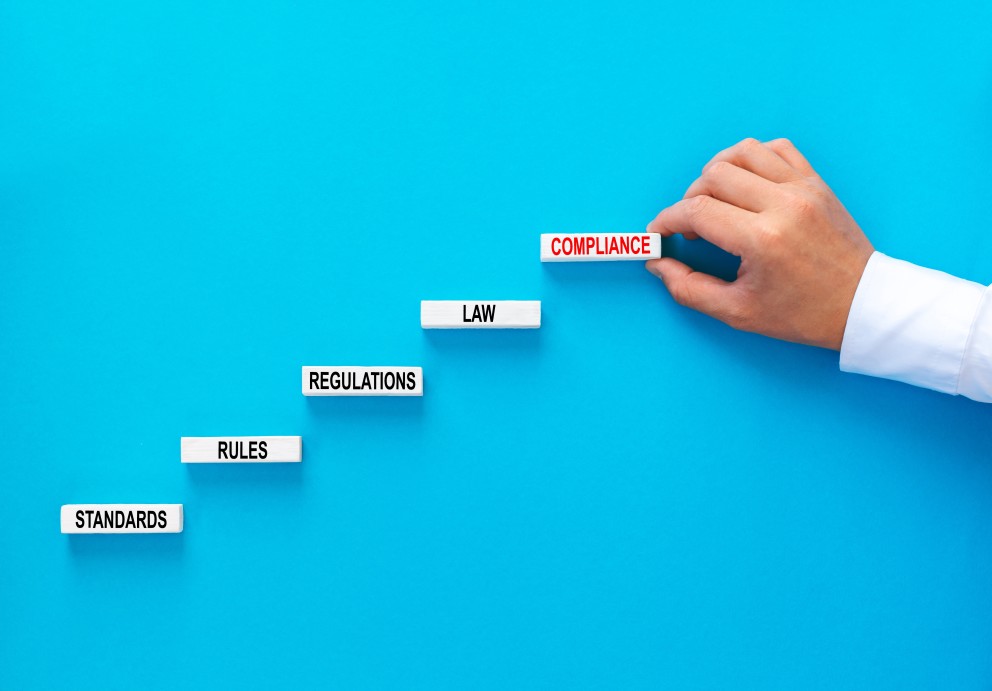When purchasing something online from the US, do you ever wonder “Can I ship this?” If so…keep reading. Believe it or not, not everything that you can easily – and completely – legally purchase overseas can be shipped back into the United States. A lot of travelers abroad operate under the impression that if it’s okay to purchase elsewhere it’s probably okay enough to send back to the US, but that’s not really how things work.
Thankfully though, with just a little bit of information and insight (like the details we highlight in the rest of this quick guide) you won’t have to worry about understanding whether or not something can be sent from the United States to an address abroad. Due to US export regulations and carrier restrictions, there are certain items international shoppers are prohibited from exporting into their country. It’s critically important that you understand exactly what you are getting into when you decide to send things to yourself through the USPS from overseas – and especially when you want to send something to others back home in the United States. The last thing you want to do is find yourself on the wrong side of the law just because of a completely innocent mistake that could have been avoided altogether, often times with you still being able to send the item or items back to yourself in the US as long as you go through the appropriate channels.
At the same time, you want to make sure that you are legally able to send things from the United States to overseas locations as well. With a little bit of research you can avoid unnecessary delays, seizures, or the destruction of items were having sent from the US to an international address. There’s an entire list of things that the USPS (and partner shipping companies) simply will not handle domestically or internationally. The beauty of these shipping companies is that they regularly publish information related to prohibited items that you have a tough time sending, but it is still something that you’ll have to square away on your end.
Telling US postal service inspectors or U.S. Customs agents that you simply didn’t know you are legally able to send something through the mail usually isn’t going to fly. It’s critically important that you do as much research and due diligence as possible to know exactly what you are getting into when you send potentially prohibited export items internationally – something that is just as important (if not even more so) as understanding whether or not you can legally import things to the US, too.
Whether you are shipping to Germany, Canada, India or anywhere else overseas, it is best to make sure the United States doesn’t have restrictions on your item. Some items are classified as hazardous, some items are flammable, some items don’t have an FDA approval or aren’t approved by another agency. Other items are just illegal to ship, such as various drugs or narcotics. Whatever the rhyme or reason, this is a rough list of items that are prohibited from international shipping. Know before you shop!
There are plenty of items that exist in the “gray space” between the perfectly acceptable side of things and the obviously unacceptable side of the spectrum, too. Again, this really isn’t something that you want to sort of fly by the seat of your pants with.

Shipping from the US to your country (what you cannot ship from the US):
The list below is a pretty exhaustive breakdown of all the things you’re going to want to avoid shipping from the United States to other nations around the world, regardless of the specific rules, regulations, and municipal restrictions that may be in place. While this list is very comprehensive it should not be used as a “be-all, end-all” kind of checklist that you use exclusively to determine whether or not something is a prohibited export item or not.
Though the information below is a great set of guidelines to work off of it is still always a good idea to either contact someone at U.S. Customs to determine whether or not you can send something overseas or contact someone at a consulate for the nation you are sending something to – just to get things cleared up a bit. This very specific information is going to help your whole lot more than generalities, though the ballpark details below will help you understand the framework of things that are likely to be prohibited straight out of the gate. Let’s dig right in!
Medicines, Prescriptions, Various
- Prescription medications
- Including dental
- Including veterinary
- Prescription medical devices
- Medical devices if not FDA-approved
- Pro hormones, Human Growth Hormones, stem cell treatments, steroids or synthetic versions
- The following items that are not labeled in English, or without FDA-approved labeling requirements:
- Non-prescription medications
- Dietary supplements
- Cosmetics
- Food
- Any food, supplement, drug or cosmetic that has been issued a Consumer Safety Advisory Warning
- Perishable products of any kind
- Lab reagents, biologics, cultures, medical specimens
- Poisonous substances
- Toxic substances
- Including inhalation hazards
- Infectious substances
- Explosives, fireworks, gun powder, flares or matches
- Gasoline, diesel or other fuels
- Lighters containing fuel
- Meals Ready to Eat (MRE)
- Pesticides, herbicides, fungicides
- Radioactive elements or products
- Self-balancing boards (hover boards)
Weaponry and Components
- Oxidizing agents
- Fire extinguishers
- Firearms, guns & accessories
- Including replicas
- BB/pellet/air soft/paintball guns, parts and projectiles
- Ammunition, magazines & bayonets
- Stun guns & tasers
- Tear gas, mace & pepper spray
- Gas masks & gas mask filters
- Law enforcement striking weapons, including saps, batons & billy clubs
- Handcuffs of any material, including plastic zip tie restraints & straitjackets
- Body armor, helmets or personal protection articles with kevlar or ballistic ratings
- Military/tactical/police shields
- Government, police or military uniforms, IDs and Badges
- real or replica
- Military training equipment
- Military and/or dual-use flight helmets and flight jumpsuits
- Military and law enforcement equipment
- Thermal imaging, Infrared or other night vision devices
- Rifle-scopes, laser pointing & aiming devices for firearms
- Defense articles controlled under the US Munitions List as defined under the International Traffic in Arms Regulations
Various
- Self-propelled vehicles
- Damaged batteries
- Any dual-use or commercial article controlled under the Commerce Control List (CCL) as defined under the Export Administration Regulations, where the control status requires a Bureau of Industry and Security (BIS) approved export license
- Counterfeit products
- Contraband or illegal substances
- Lottery tickets
- Gambling devices & accessories
- Lock picking devices
- Rough diamonds
- Live or dead animals or insects
- Human remains
- Coral
- Brazilian rosewood
- Skin or leather of snakes, alligators, crocodiles, stingrays, and other reptiles or amphibians
- Skin, fur or leather of wolves, bears, elephants, rhinos and certain deer and foxes
- Sturgeon or Beluga caviar
- Agricultural products, including certain seeds, live or dead plants, unfinished or untreated wood & soil
- Items containing animal products controlled under the Endangered Species Act, Marine Mammal Protection Act, or requiring a permit under CITES
- Any unidentifiable material, substance or chemical

These are the most common prohibited items worldwide, some countries may have even more restricted or prohibited items. These are items that may not leave the US at all.
As we highlighted earlier, though, this list is not totally complete or entirely comprehensive. On top of that, the US government has the full right and authority to change their mind about prohibited items at any point in time – and without any advance notification – which means it’s up to you to verify that you are good to go.
Don’t be afraid to contact officials at U.S. Customs that can help point you in the right direction to further resources about what you can and cannot ship internationally. They may also be able to answer your questions directly, too.
Commonly asked questions:
Can I ship liquids?
Yes! If it is things like perfume, lotion, and shampoo, you can ship internationally. However, some exceptions include:
- perishables
- toxic substances
- gasoline
A lot of the most common liquid restrictions when it comes to shipping have to do with potentially hazardous materials, potentially dangerous toxins, and flammable liquids (like gasoline, for example) that are anything but safe or stable to ship outside of purpose built containers.
Some people conflate the rules and regulations that handle whether or not we are able to bring liquid substance on board airplanes with us with international shipping rules and regulations. It’s important to understand that these two things are completely different sets of protocols and one does not necessarily influence the other.
As a general rule, it’s a good idea to try and stay away from shipping liquids overseas just because of the headache, hassle, and expense that it inevitably brings to the table. Anything that may be viewed unfavorably by shipping partners or by the customs agency at the country you are sending this mail through will likely be confiscated and destroyed. Nobody wants to deal with all that extra headache and hassle, either.
Can I ship alcohol or aerosols?
No, USGM does not allow shipment of alcohol or aerosols. You will have an impossible time shipping alcohol or aerosols with an organization like US Global Mail. A lot of this has to do with the potential safety risks that shipping these substances inevitably include, but another big part of why you won’t be able to ship these things internationally has to do with local rules, regulations, and restrictions that may be in place in countries around the world.
If you do end up wanting to ship alcohol products or aerosol products through the mail from the United States to international destinations, it’s not a bad idea to speak to local liquor stores or alcohol distributors to ask about how they might go about helping you facilitate this kind delivery.
They may be able to help you (and then again they may not), but at the very least you’ll be speaking to experts that know a little bit about shipping alcohol and that know how to navigate the myriad of laws, rules, and restrictions in place about doing exactly this.
Can I ship electronics?
Yes, with some exceptions. Those exceptions include:
- Integrated circuits
- Processors
- Microprocessor chips,
- Micro controllers
- Satellite Phones
- Ruggedized Computers
- High Powered / Commercial Grade Networking Devices (Servers & Routers)
- Military Grade Electronics of any kind
- High-End Devices: Encryption Devices, GPS, Radar, Sonar Devices, Communications Devices / Radios
Almost all consumer electronics are going to be “good to go” when you want to ship something internationally. These aren’t the kinds of products you will run into a lot of trouble with when you are exporting something overseas, especially in small or individual quantities.
Sending larger amounts of electronic and computer components, especially over longer stretches of time, are going to have your shipping activities more closely scrutinized by the experts and federal officials at U.S. Customs, at the USPS, and with any of the shipping partners that you have chosen to take advantage of.
There are ways to safely and completely legally send larger quantities of these kinds of items overseas. But you do have to make specific sets of information clear to U.S. Customs officials if you’re going to go down that road. You won’t be able to just simply box things up, slap a shipping label on them, and hope that you are going to clear customs with no trouble at all.

For more information for your country, check restrictions by carrier:
Prohibited items to ship via USPS
Prohibited items to ship via FedEx
Prohibited items to ship via UPS
Prohibited items to ship via DHL
Be sure to reach out to these companies and the shipping partners with all of your questions regarding the legality and safety of sending any items you may have questions about. These companies handle millions and millions of packages and parcels every month and are going to be clued into the most recent rules and regulations that dictate what can and cannot be sent out of the country to addresses overseas and abroad without any issue.
It’s a good idea to consult these breakdowns regardless of whether or not you are nervous about your items getting the green light from the same shipping partners. It’s never a bad idea just to double check the legality of what you are up to, confirming that you are in the clear and that you aren’t going to be slapped with any surprise issues – fees, penalties, or even potential legal problems – just because you didn’t check with these shipping partners first.
Other Related Helpful Links:
- USPS List of Restricted Items
- US Department of Commerce Export Info
Still not sure about an item? Contact us!
Here at US Global Mail we have built up a reputation as one of the best mail forwarding, mail scanning, and nontraditional mail servicing solutions in the industry today.
With thousands of clients all over the world (including individuals, small and midsize businesses, entrepreneurs, and more) taking advantage of our mail services we have a lot of experience helping people determine whether or not the items they want to mail internationally can be done so safely and legally.
A breakdown of all the services we offer can be found on our main web page, but you can also reach out to us at any point in time – at your earliest convenience – with specific answers about solutions we here at US Global Mail provide.
We hope that you will reach out as soon as you get a chance!
To get redirected to the Home Page, click here.





